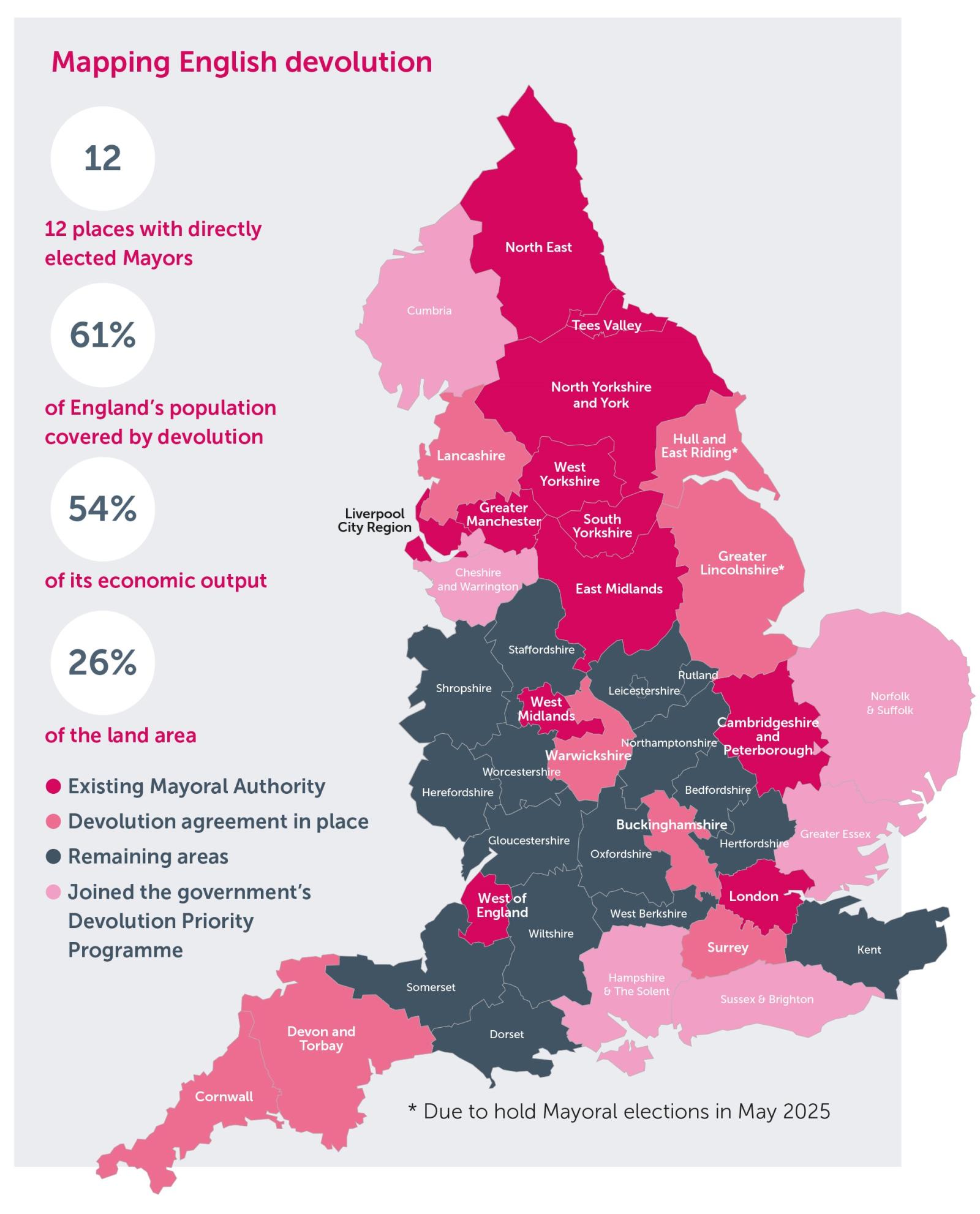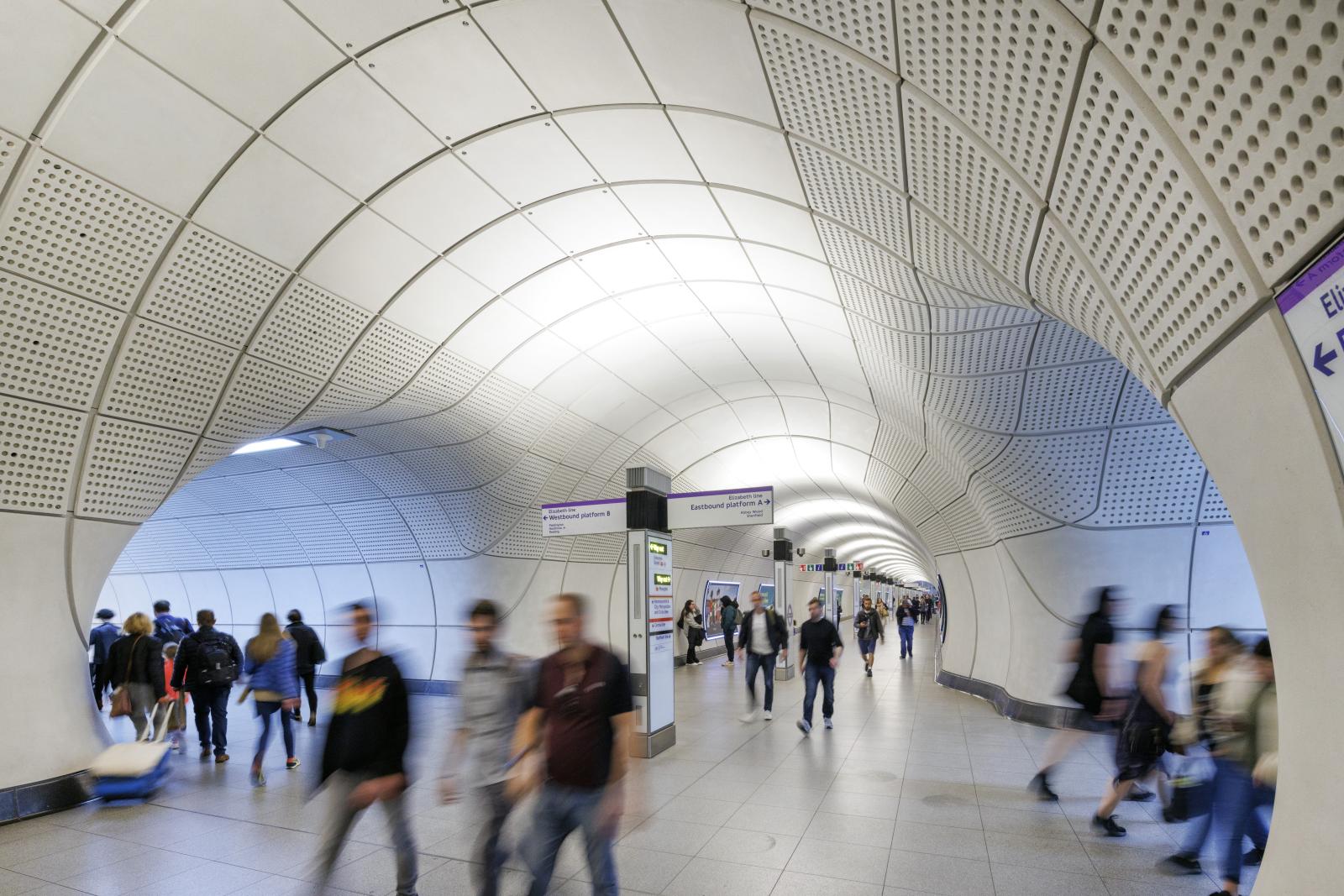The pathway to a brighter transport future
Delivering growth through transport devolution
The pathway to a brighter transport future: Delivering growth through transport devolution
The fundamental belief underpinning devolution is that local needs are best served by local decision making informed by local knowledge.
English transport devolution is beginning to deliver real change across major cities. Transport devolution in England has demonstrated transformative potential in enhancing connectivity, promoting economic growth, and addressing regional inequalities. Through localised decision-making, long-term funding certainty, and integrated policy making, city regions have begun to unlock the opportunities for improved public transport systems and active travel infrastructure.
To fully realise the ambitions of transport devolution, the government must prioritise expanding powers in critical policy areas such as micromobility and rail integration, alongside implementing sustainable financial mechanisms.
Following the release of the new English Devolution White Paper, this report explores the central role of transport in the journey of English devolution, looking back at the history and delivery, as well as forwards, exploring the missing links and next steps.

Unlocking the potential
In order to unlock the full extent of the opportunity that devolution offers, we recommend that the Government must:
- Progress at pace with the further devolution of powers in policy areas outlined in the new English Devolution White Paper.
- As part of the upcoming Spending Review, commit to greater fiscal devolution by providing city regions with greater local investment levers.
- Ensure a sustainable financial future for local and combined authorities through a new sustainable, long term funding approach.
- Provide a multi-year funding settlement for Transport for London to enable it to properly maintain and renew transport assets and to honour existing contracts to deliver upgrades to the network.
- Ensure that the method used to allocate transport funds through new Integrated Settlements is fair, transparent and adequate to the needs and plans of the devolved areas.
- Put in place a simplified and flexible accountability approach that clearly recognises and reflects the importance of transport spending, its long-term nature and the requirement for sufficient capacity building.
- Ensure the delivery of various national strategies concerning transport take account of the timing, goals and interdependencies and requirements to best support Local Transport Authorities.

Transport devolution is changing England’s major city regions for the better – improving our public transport networks, boosting growth and setting ambitious plans for more homes. To fully deliver the government’s Plan for Change and realise the benefits of economic growth, transport devolution most go further and faster.
The next chapter in transport devolution
Whilst significant progress has taken place across English city regions on devolution of transport powers and funds, the journey is by no means complete.
There are transport modes that require further devolution of powers, alongside the need for certainty of long term funding across local government tiers, clarity over the interaction of various national and regional policy frameworks, and the key missing piece of the White Paper - strengthening of fiscal devolution.

